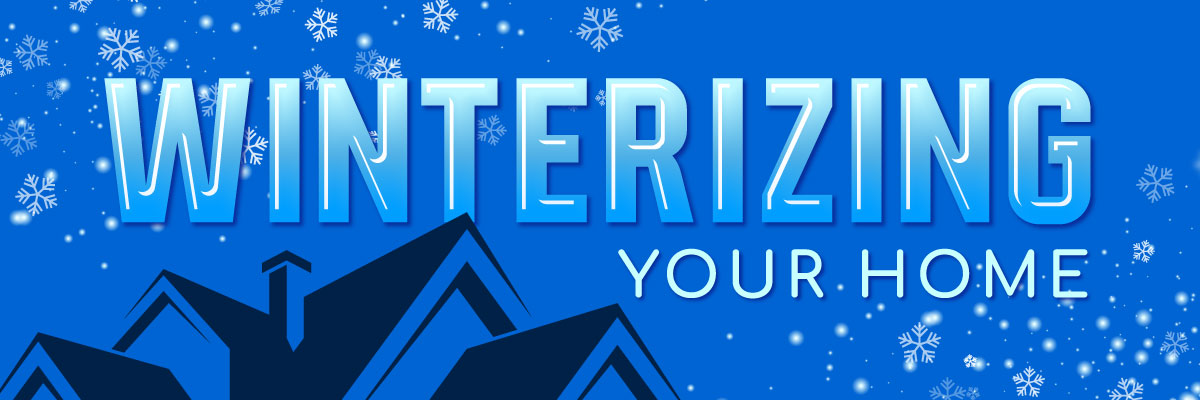Are You and Your Clients Ready for Winter?
December 8, 2022
The official start to winter hasn’t yet arrived, and we have already had some very low temperatures. Make sure you and your clients are ready for the season with our home winterization tips!
Exterior
- Take a look around the outside of your home to inspect for material that may be damaged and letting in cold air or moisture during the winter months. If you notice any areas have cracked, some caulk inside could help do the trick to avoid air sneaking in.
- Make sure hoses are disconnected. Leaving a hose connected to the house through winter can cause the water inside the hose bibs to freeze. The next time that hose is turned on, they could burst and even lead to flooding.
- The roof is a major area that may go unnoticed, so be sure you take care of any loose or missing pieces and clear off any debris from surrounding trees. You should also inspect the ceiling under the roof to check for any water damage that may show signs of a leak.
- Don’t forget the gutters–the leaves and dirt can cause a major headache if left unattended.
Interior
- If there are colder or basement areas in your home, consider adding pipe insulation so they don’t freeze during a cold snap. You may also want to add new or additional insulation in areas that may not be well protected.
- Though you may have already checked on the outside, you can double check the interior of the home for cracks that may be letting in air.
- Another way to protect your home and save your heat bill can be to add weather stripping to doors and windows.
- For safety, be sure to inspect your fireplace before the first use. Always regularly test your smoke and carbon monoxide detectors to ensure they are working properly. It could be a good idea to check out programmable thermostats so you can always keep an eye on the temperature, even when you’re away.
Preparedness
No matter where in Virginia you live, there is typically some form of winter weather each year. Make sure you are ready for anything by keeping a flashlight, ice scraper, and snow shovel on hand. You may even consider additional supplies you’d want to have in the case of a power outage. Stocking up on these items now can help you in the future.
Stay warm, stay safe, and keep an eye out for more tips from Virginia REALTORS®.

You might also like…
Top Paint Color Trends for 2025
By Stephanie Flynn - January 29, 2025
We know you’re busy helping your clients get their homes ready for the market. Check out the latest paint trends for this new year, how to make the… Read More
Heat Up Your Business with Virginia REALTORS® Member Benefits
By Stephanie Flynn - January 23, 2025
It may be a dark and frigid time of year, but don’t let that stop your business from moving right along! If the winter temperatures are keeping you… Read More
Winter Curb Appeal: From Frosty to Fabulous
By Stephanie Flynn - December 10, 2024
The market doesn’t stop for the weather! This winter season, your clients may be hosting everything from open houses to holiday gatherings. Provide them with some tips on… Read More